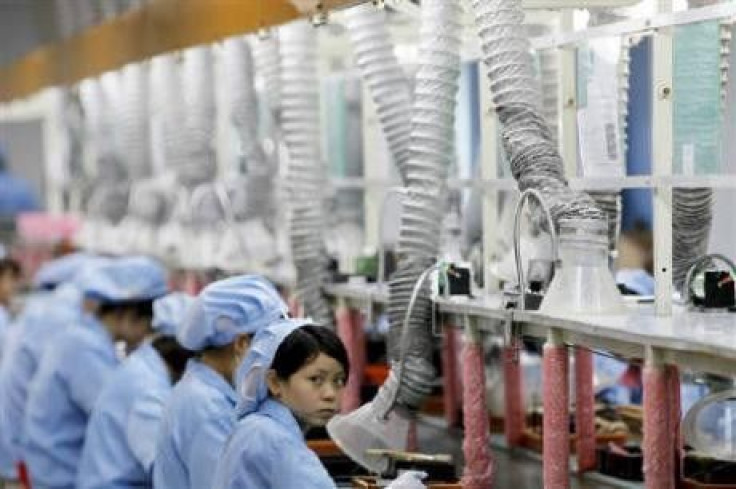China Services Sector PMI, As Reported By HSBC, Posts Modest Expansion, While Composite PMI Contracts

China’s services sector recorded a small expansion in July but the composite index, weighed down by a slowing manufacturing sector, contracted further, casting fresh doubts on the pace of future growth in the world’s second-largest economy, a HSBC-Markit survey, released on Monday, showed.
The China Services Purchasing Managers’ Index, or PMI, stood at 51.3 in July, unchanged from the past two months, but above the 50.0 level, which indicates expansion. However, overall growth in the service sector remains historically weak, the survey showed.
"China's service sector has stabilized at a relatively low level of growth...Without a sustained improvement of demand, services growth is likely to remain lackluster, putting downside pressures to employment growth," HSBC's chief economist for China, Qu Hongbin, said in a statement.
And, the country's Composite PMI, which includes both the manufacturing and services sectors, contracted to post a reading of 49.5 in July, down from 49.8 in June -- its steepest fall since November 2011, the survey showed.
Volumes of outstanding business declined across both the manufacturing and service sectors during July, and both sectors reduced tariffs and provided discounts, indicating efforts to renew weakening demand from both domestic and foreign markets.
On the other hand, according to China's National Bureau of Statistics, official non-manufacturing PMI rose to 54.1 in July from 53.9 in June, according to a statement released on Saturday. Cai Jin, vice chairman of the China Federation of Logistics and Purchasing, or CFLP, said the moderate increase indicated an improvement in China’s economy.
“Although challenges remain, China’s economy has the foundations for steady growth,” Cai said, according to a Xinhua news report.
China’s economy is expected to grow at its slowest pace in two decades this year after the economy grew at 7.5 percent in the second quarter, down from a growth of 7.7 percent in the first three months.
Last week, the Chinese government, worried over the continuing slowdown, had announced a slew of measures to boost growth in the real estate and infrastructure-related sectors.
The CFLP, on Saturday, said it expects the government to introduce more supportive measures such as tax cuts in the second half of the year, to aid small businesses, Xinhua reported.
Surveys on the manufacturing sector, released last week by HSBC and the Chinese government, showed conflicting readings, making it harder to judge the real health of China's economy. HSBC's survey showed manufacturing activity contracted for the third consecutive month to 47.2 -- an eleven-month low in July -- while an official report showed manufacturing PMI rose to 50.3 in July.
Some analysts believe that the official data indicate that the slowdown may not be as bad as many observers have warned, but the marginal improvement in the PMI is not significant enough to point to a full-scale economic recovery.
"I am more worried about manufacturers. I don't think the worst is over," Zhang Zhiwei, a Nomura economist in Hong Kong, told Reuters on Monday. "Policy will continue to be tight and growth will continue to slow in the second half of the year."
© Copyright IBTimes 2024. All rights reserved.












